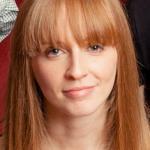Nobody ever told me not to ask questions but I figured it out all the same.
Not that I didn’t ask any questions, I was always asking questions. I couldn’t receive a single instruction at home without questioning it, much to my father’s chagrin. I was a bottomless pit of questions about the minutiae of the stories I heard. And I asked a lot of ‘what if’ questions when I was weighing up doing something. Eventually, when they’d had enough, I would be told, “Quit dinging on, now.”
So I asked a lot of questions. But I never really got around to the ones I wanted to ask most. I spent the first twenty odd years of my life trying not to be seen. One of the ways we show ourselves is through the questions we ask, so to remain unseen I had to keep my real questions to myself too.
When I discovered Erik Erikson’s work around identity development a few years ago his concept of psychosocial reciprocity lodged in my brain. Erikson said a grounded sense of identity requires psychosocial reciprocity, which means consistency “between that which he conceives himself to be and that which he perceives others to see in him and expect of him.” In other words, we need the world to see in us what we see in ourselves.
By this point I had identified that I wanted to know who I am – what I am and what I am not – and what it looks like to be myself. But Erikson’s revelation about psychosocial reciprocity meant I could no longer kid myself that it was enough to quietly be myself inside my own head. I had to actually show up in the world as that person. Which, of course, meant I had to start asking honest questions out loud.
Outwardly being myself and asking honest questions is still a work in progress. But the more I do it the better I feel, the more connected I become with the world around me, and the faster my work deepens.
As part of the process I’m also learning not to be threatened by the questions of others. I’m learning that questions are not the dangerous things my culture taught me they were. I’m learning we can look at difficult things together, openly and civilly. I don’t have to jump to my defence or shut people down.
I believe in the power of civil conversation fuelled by honest questions. Civil conversation and inquiry into ourselves, each other, our history, and the forces that have shaped us is maybe the only route to real progress.
Earlier in my career I was interested in finding the best way of doing things and then convincing people I had found the right way. These days I have no interest in convincing anybody of anything. I’m interested in showing myself. I’m interested in helping others to do the same. And I’m interested in the unanswerable questions we share.
Every body of work is built around an unanswerable question seeded by cultural and family wounds. If you can uncover the forces and questions that have shaped you, the direction of your work in the world becomes a lot clearer.
